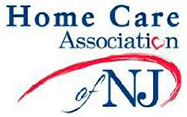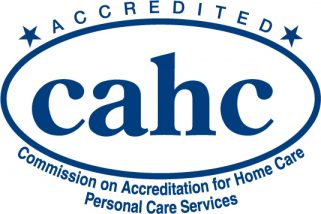Falls are a leading cause of injury for the elderly. Darkness increases the fall risk for senior citizens. Eyesight tends to worsen with age, and our eyes don’t adjust as well to the changing light of the evening and the darkness of night. Making changes around the house can reduce the risk of night-time falls.
Fall risk refers to the likelihood of tripping, stumbling, or hitting the ground. Several factors impact a person’s risk of falling, such as their balance and gait. Older adults are more likely to be injured by such accidents.
Factors Affecting Fall Risk for Senior Citizens
Understanding what causes accidents goes a long way in helping prevent them. Falls usually result from a combination of different factors. The risk increases in correlation with the number of elements present. Identifying and modifying such characteristics decreases a person’s fall risk. A medical professional can determine fall risk using a specific assessment.
Environmental factors
- Uneven or slippery surfaces — wet floors and uneven walkways are hazards for senior citizens.
- Trip hazards — obstacles that get in the way when walking include debris, rugs, and even pets.
- Bad lighting — dim light or bright glares make it harder to see where you are going.
- Narrow stairs — poor stair design increases the chance of a missed step.
- Medications — certain psychoactive drugs are associated with increased falls.
- Lack of handrails/grab bars — senior citizens are more likely to fall if there’s nothing to hold on to.
Personal factors
- Fear of falling — being afraid to trip increases the risk of falling.
- Advanced age — the older a person is, the greater their fall risk.
- Poor balance — balance exercises can help prevent trips.
- Improper gait — irregularities in a person’s manner of walking can lead to injuries.
- Visual impairments — difficulty seeing increases the risk of tripping.
- Reduced muscle strength — weakened muscles don’t support joints and bones as well as strong ones.
- Slow reaction times — senior citizens have a more challenging time catching themselves if they have diminished reflexes.
- Chronic conditions — Osteoporosis, Stroke, Parkinson’s Disease, and other medical illnesses contribute to fall risk.

Factors That Contribute to Night-Time Fall Risks
In addition to these environmental and personal elements, several factors make night-time more hazardous. For example, senior citizens who have a frequent need to urinate may be up more often during the night. Medicines and conditions related to insomnia also play a role in night-time fall risk. A person with restless leg syndrome may have an increased desire to be up and moving around at night as well.
How to Mitigate Night-Time Fall Risk for Senior Citizens
- Make the bathroom safer – The main reason seniors are up at night is for the bathroom and water. Make the bathroom safe for senior citizens at night. Place an automatic night light in the bathroom. Replace throw rugs with non-slip mats.
- Install stability bars – Place grab bars in the bathroom for added support when getting on and off the toilet. Also, placing hand railings along hallway walls help senior citizens navigate dark corridors at night.
- Rearrange furniture – Take a critical look at furniture placement. A layout that works fine in the daylight could cause obstacles during the night-time hours. Establish a clear path to prevent colliding with furniture.
- Wear house-shoes – Encourage your loved one to wear high-traction slippers or socks around the house at night. Not only do these keep your feet warm, they also provide extra traction to prevent slips and falls.
- Sleep through the night – Night-time fall risks are significantly lower for senior citizens when they sleep through the night. Talk to your loved one’s healthcare provider about sleep-related issues such as sleep apnea, insomnia, and daytime fatigue. Limit the use of alcohol, caffeine, and tobacco before bed.
Daily Check-Ins
Many senior citizens live alone, which makes it challenging to address hazards at home. Having someone check in on them weekly or daily helps reduce the likelihood they will have a spill. The person checking in on them should know what to look out for and work with your loved one to ensure their environment is safe.
When visiting, pay attention to your loved one’s balance and gait. See if they are using recommended assistive devices—a cane or walker won’t prevent a fall if they leave it by the front door as soon as they arrive home. Check that the floor is free from hazards and has clear paths to the bedroom, bathroom, and kitchen. Seniors many need help replacing light bulbs or installing grab bars.
In-person visits aren’t feasible for everyone. A simple morning video chat can be enough to ensure your loved one hasn’t been injured in a night-time fall. If you live far away, identify a neighbor or local friend you can call to check in on your loved one.
Medical Alert Systems
Older adults also need a way to reach out to someone if they do have an accident. For some people, having a phone is not enough. If they fall at night and are unable to get up, they may remain on the floor for hours until someone comes to check on them in the morning. Medical alert systems are a wearable device. When the user pushes the help button, it connects them to an operator at the monitoring center. The operator can then assess the situation and/or call for emergency services. Alert systems can be a literal lifesaver when it comes to fall risk for senior citizens.
In-Home Care
When you hire a Certified Homemaker-Home Health Aide, you can have peace of mind that your loved one is taken care of. CHHHAs do more than check on senior citizens. They can provide personal care which includes bathing, dressing, grooming, transferring, and toileting as well as help their clients follow medical advice such as strength and balance exercises to help reduce falls. They can also provide medication reminders, light housekeeping, laundry, and meal preparation. Anita’s Angels’ caregivers are well trained in how to take care of your loved ones. We are Families Helping Families—Call 908-788-9390 for a free in-home consultation.




